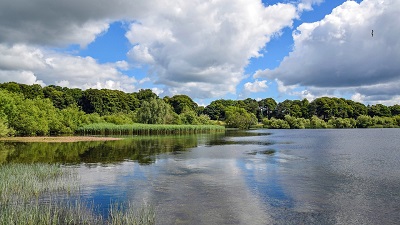Lakes provide essential services to society including water supply, water quality regulation and recreation. However, lakes are impacted by a wide range of often interacting environmental pressures, such as climate change, pollution and invasive species, threatening these services.
We carry out multidisciplinary research that provides process-based understanding of how lakes function and are impacted by these pressures. Our long-term datasets provide important information on pressure-response-recovery chains. This understanding is used in the planning, assessment and implementation of whole-lake restoration programmes within the UK and beyond. By synthesising this knowledge into decision support tools, we help water managers make evidence-based decisions on how to design, implement and monitor lake restoration initiatives.
Case study: The restoration of Loch Leven

UKCEH has monitored Loch Leven, the largest shallow eutrophic lake in lowland Scotland, since 1968. Our long-term monitoring programme has given us a good understanding of the links between pollution, climate change and ecological response and enabled us to identify the main causes of water quality problems at the site. These have included high phosphorus inputs and occasional pesticide pollution.
The long-term reduction in phosphorus concentrations clearly shows that the loch has responded positively to remediation measures put in place across the catchment over the last 20 years. These have included upgrading of wastewater treatment works through the installation of phosphorus scrubbing facilities, introducing strict controls on private wastewater treatment systems for new building developments, and promoting good agricultural practices to reduce soil, manure and fertiliser run-off.
Our data have informed these improvements. They also show that while some of the worst water quality conditions were recorded in the late 1980s and early 1990s, some of the best conditions have been recorded over the last five years.